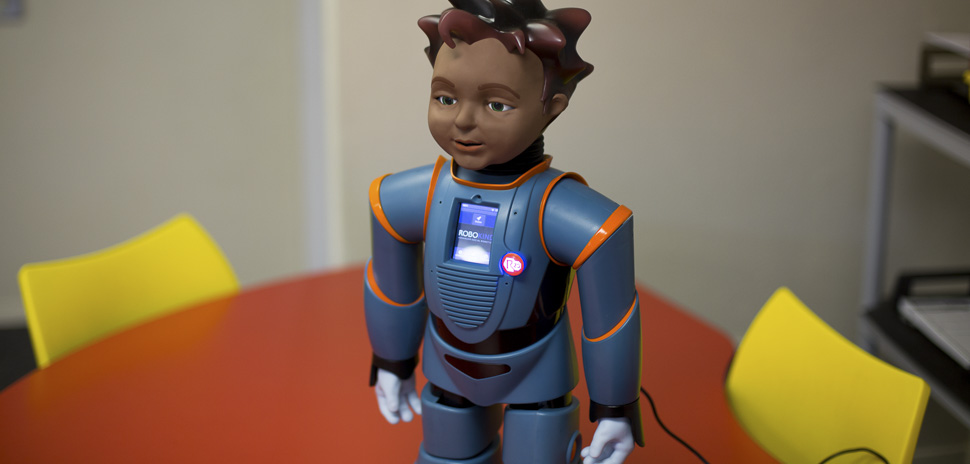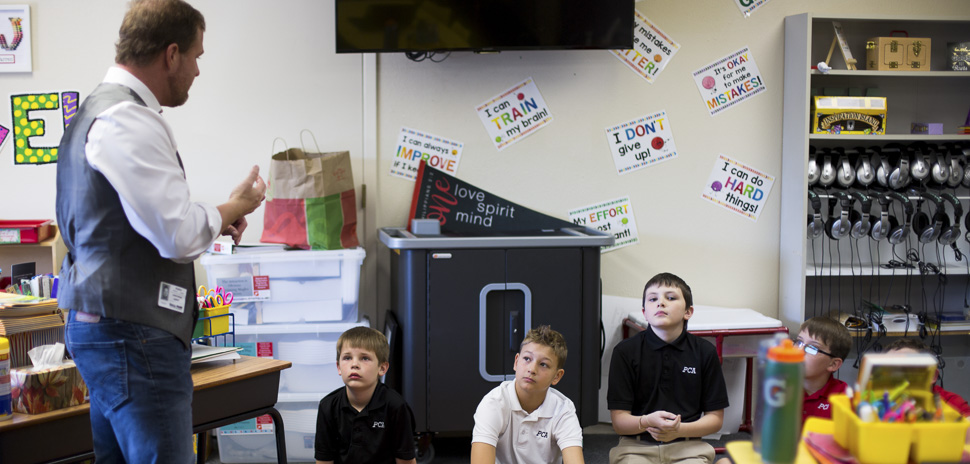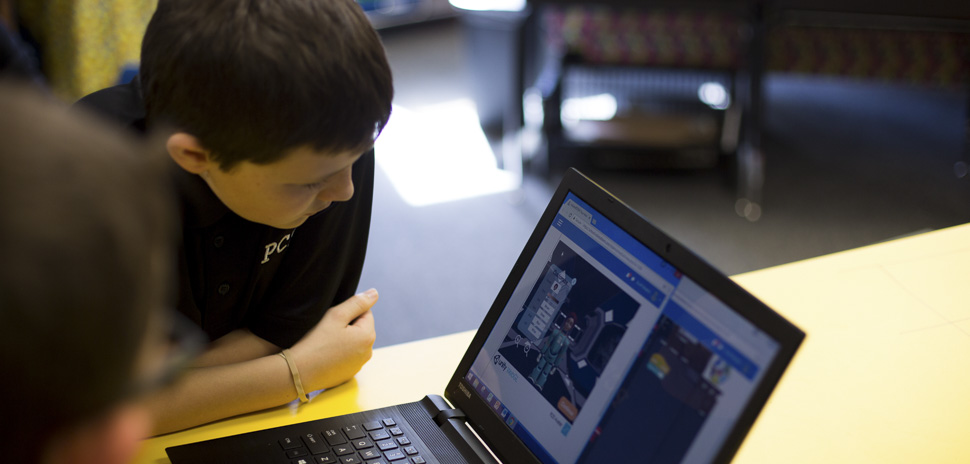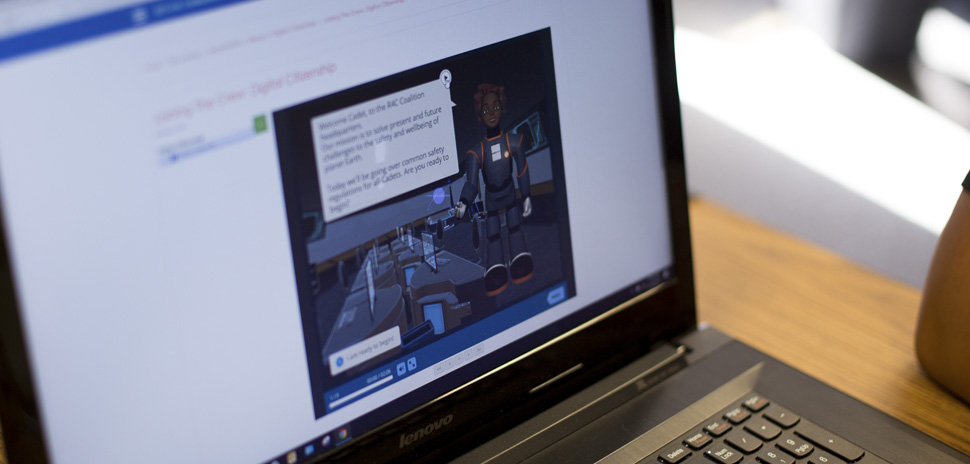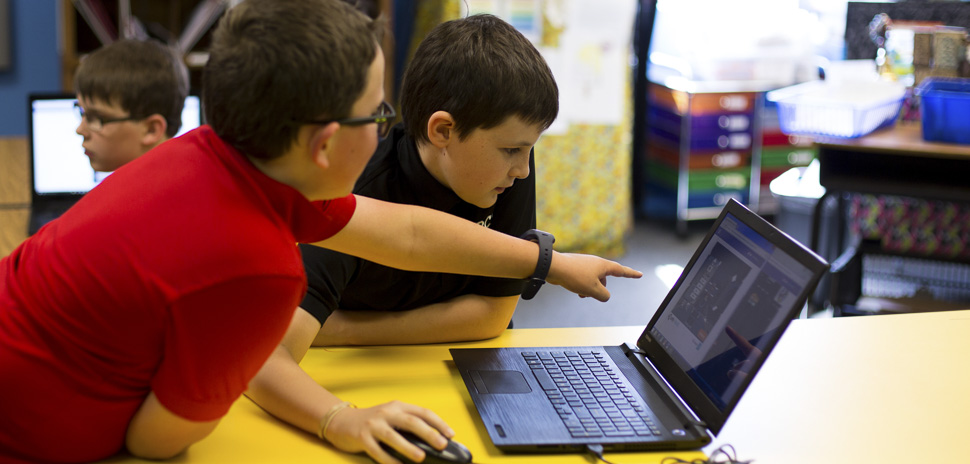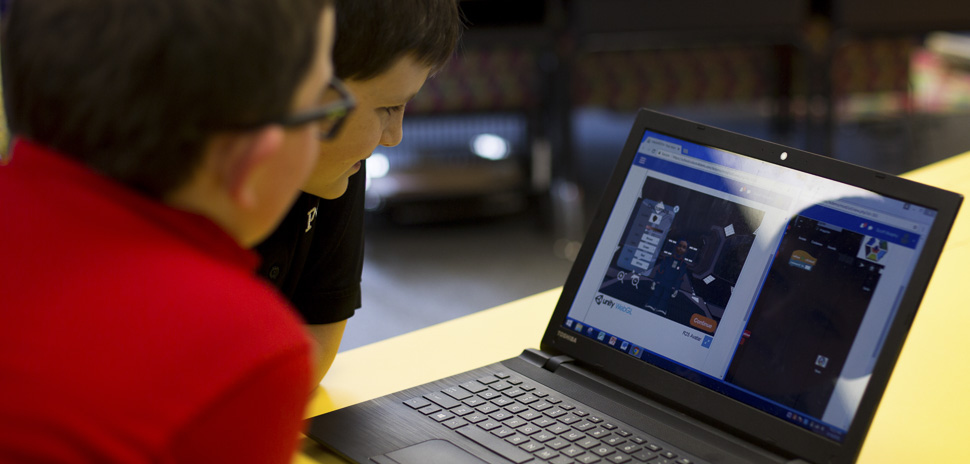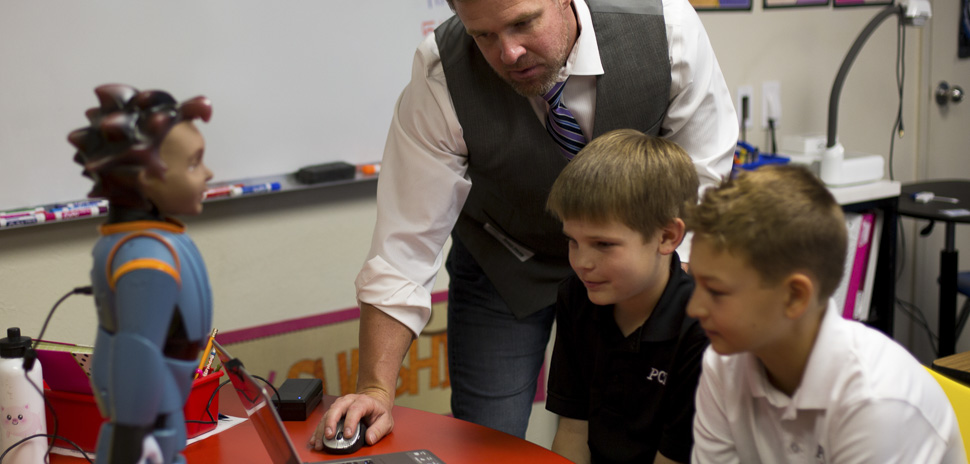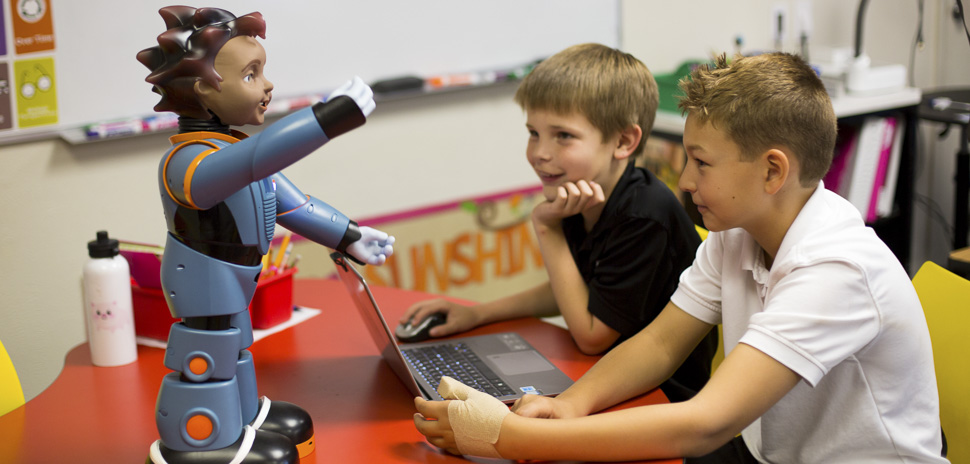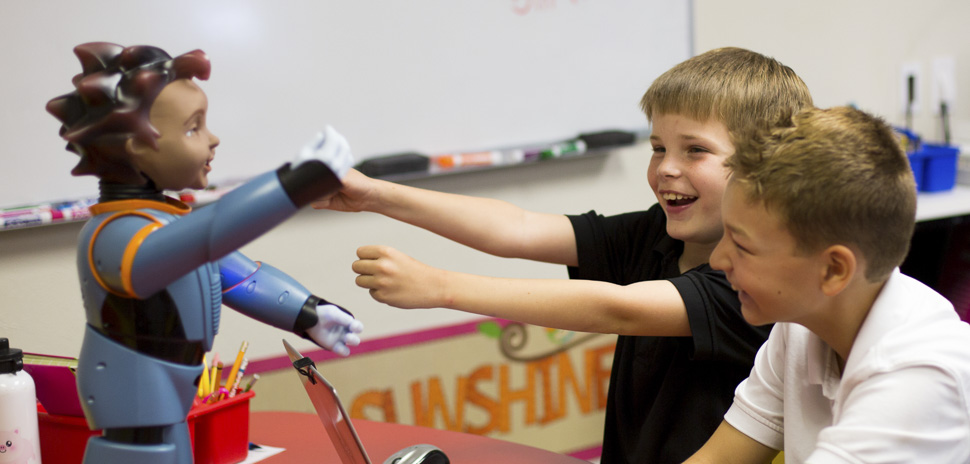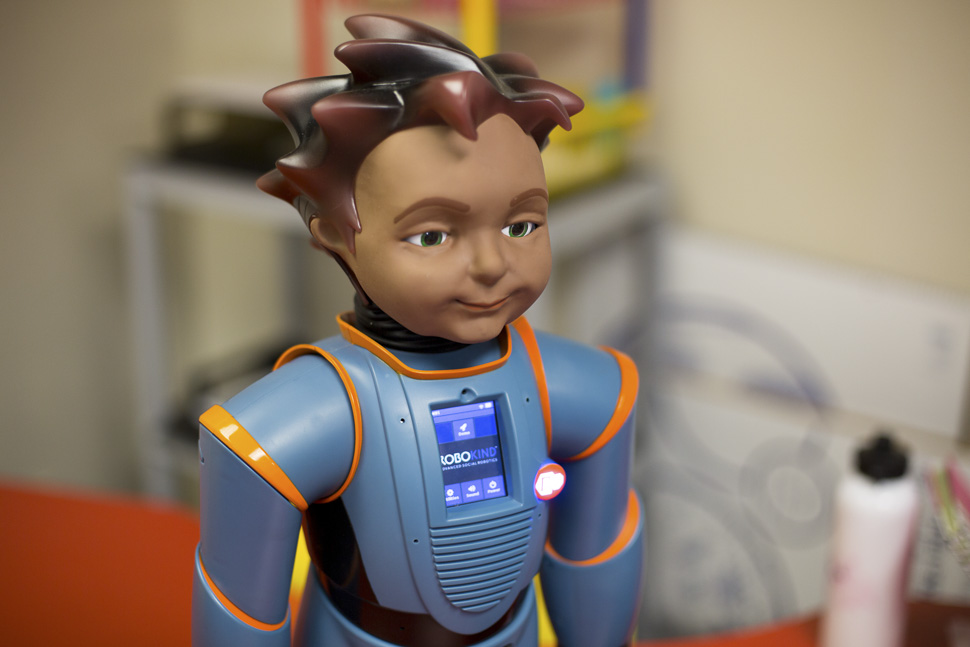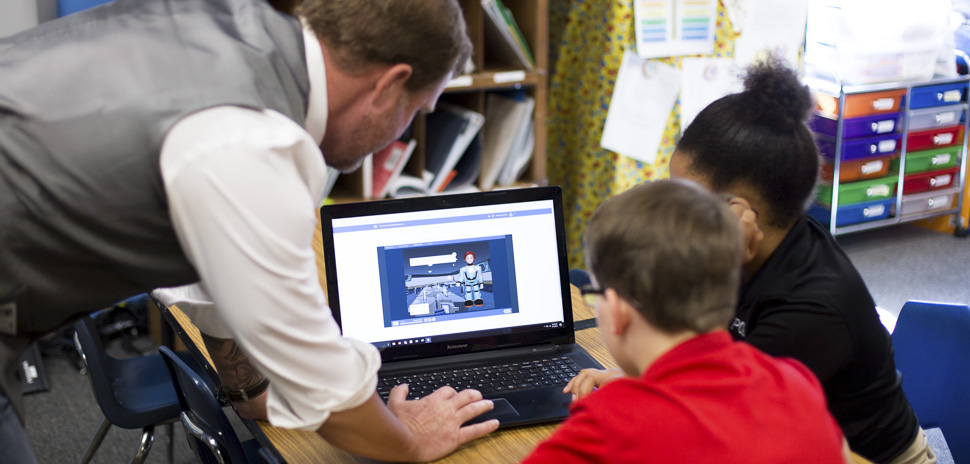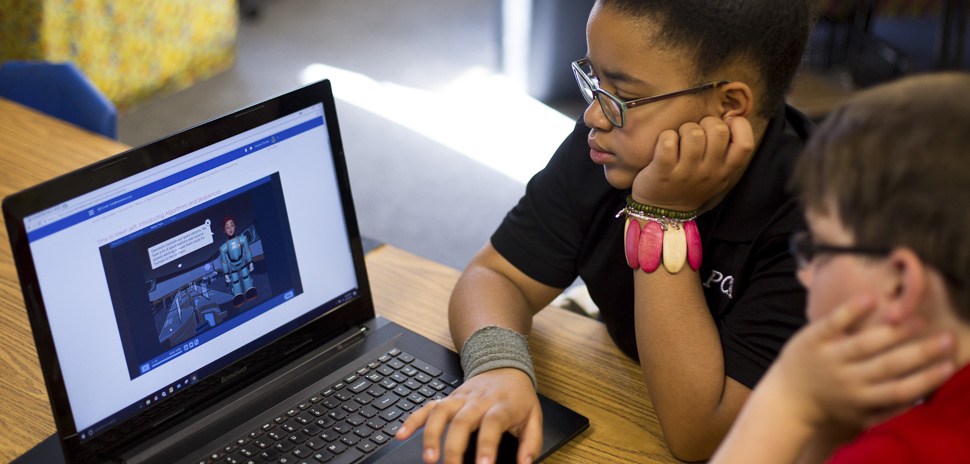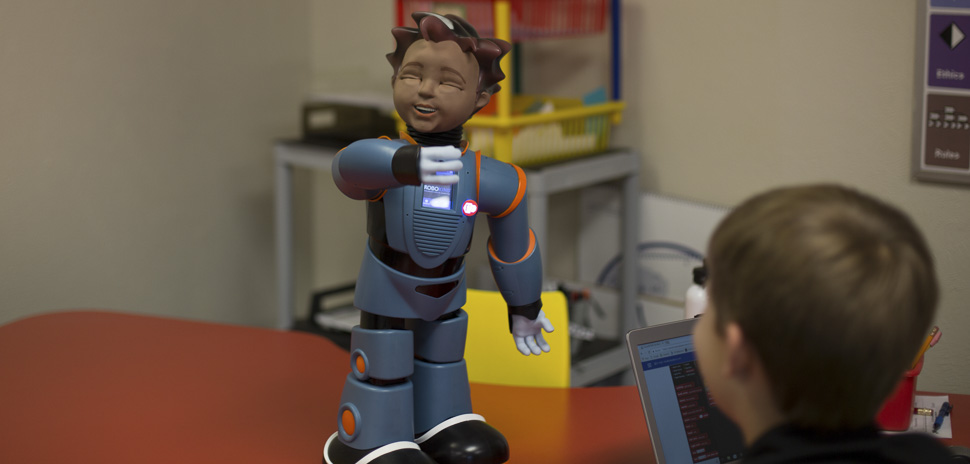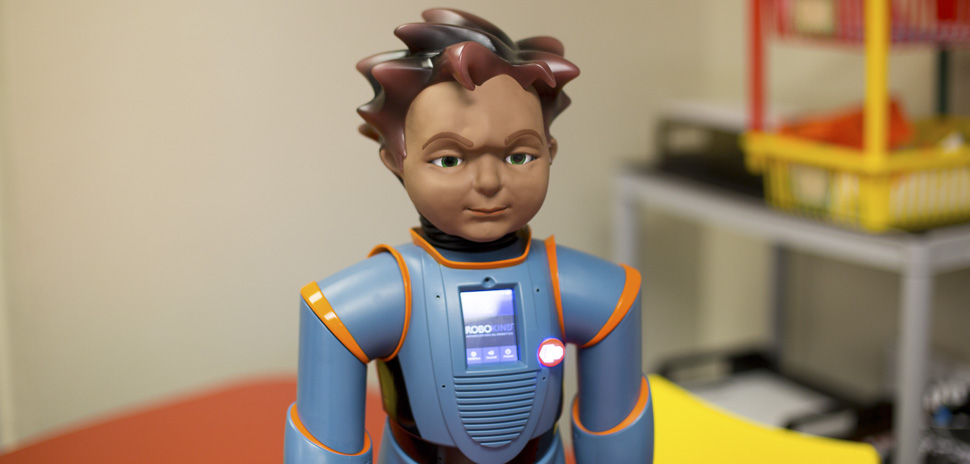Jett makes an embarrassed face, then raises his arm in dramatic style like Shakespeare before breaking into a dance routine.
All the commands were fed into Jett, a two-foot tall robot, by elementary students at Pantego Christian Academy. They drag and drop the visual commands, stacking them on top of each other to set up the sequence.
“We’re trying to capture the students at an early age to generate an interest that they can take with them.”
Scott Murphy
Jett the robot, the software, and curriculum were all created by RoboKind, a robotic education company based in downtown Dallas.
“We’re trying to capture the students at an early age to generate an interest that they can take with them,” said Scott Murphy, national sales manager for RoboKind. “If you don’t capture a child’s attention by the time they’ve reached the sixth grade, you’ve lost them. They can then build those foundational elements and start to stack up. This is just visual block coding and programming. That will lead to script coding and ultimately hard line coding.”
PILOTING ROBOTS4STEM IN PANTEGO
Recently, Murphy brought RoboKind to Pantego Christian’s Science, Technology, Engineering, and Math classroom where six gifted students from fourth and fifth grades got to test out the robot, both in the physical form and a digital avatar on board a space station.
The Dallas startup launched the robots4STEM program in March.
“Jett gives us a whole curriculum of ready-made lessons without requiring teachers to become coders,” Gregory Firn, chief operating officer for RoboKind, said in a statement.
While the Pantego visit was a trial run, RoboKind has partnered with public school districts in Texas and New Jersey that have adopted robots4STEM into their curriculum. The startup’s products are in 400 school districts across the U.S.
Murphy couldn’t release sales numbers or goals, but he said the company is looking to grow fast. He just returned from Philadelphia where he met with a district that has 149 elementary schools. He also met with Dallas ISD officials recently. RoboKind’s main focus is on North Texas school districts.
“It’s great to have the national exposure, but in my mind we want to be relevant in our home city and state,” Murphy said.
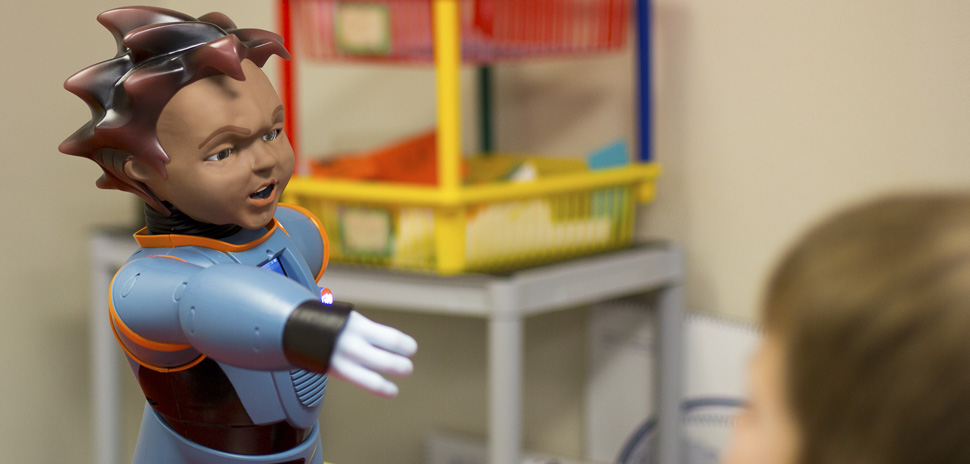
“Jett (the robot pictured above) gives us a whole curriculum of ready-made lessons without requiring teachers to become coders,” Gregory Firn, chief operating officer for RoboKind, said in a statement. [Photo: Merissa De Falcis]
JETT HELPS KIDS BECOME TOMORROW’S CODERS
RoboKind first developed the robot technology to help autistic students learn social skills. Milo, the autistic version, expresses a range of emotions and teaches children how to react. The STEM curriculum was designed for a more general education population by researchers at the University of California at Berkeley. It includes 36 hours of learning designed for students in second through sixth grade.
By programming Jett, the students learn vital skills that will help them become tomorrow’s coders. In one exercise, Jett would walk six feet in a straight line. By dragging and dropping commands, students can get him to move one unit at a time. The unit is undefined so students have to figure out how to get him to move six feet. One unit might equal two feet.
“I’ve got to move him six feet, so how many units do I need to move him? Three,” Murphy said. “What you’re doing is activating critical thinking and you’re activating computational thinking, them working in conjunction with the computer. It really allows the students to take the wheel and drive.”
For a more complex exercise, Jett could do a homerun swing, then jog the bases, making 45-degree turns as he approached a base until he reaches home plate.
The curriculum also teaches online safety, such as protecting your password, algorithmic thinking, how to control an avatar (much like playing a video game), collaboration, and if/then conditional logic. Students can level up as they accomplish certain tasks, allowing them to earn badges to show competency.
The possibilities got Kate Warren, STEM teacher at Pantego, excited.
“That’s huge; that’s a lot of problem solving,” she said.
GALLERY
Photos by Merissa De Falcis.
